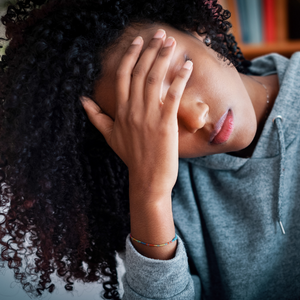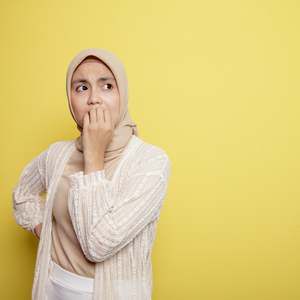Depression

There are many signs and symptoms of depression however everyone’s experience will vary.
Common signs include feeling down, upset or tearful, restless, agitated or irritable, guilty, worthless and down on yourself, empty and numb, isolated and unable to relate to other people, finding no pleasure in life or things you usually enjoy, a sense of unreality, no self-confidence or self esteem, hopeless and despairing and suicidal.
If you are feeling low, you might use self-harming behaviours to cope with difficult feelings. Please see our page on self-harm for ways to manage this behaviour. If you are feeling really low and hopeless, you might find yourself thinking about suicide. These thoughts can feel difficult to control and are very frightening.
It can be hard to explain your thoughts and feelings to others. You might find it hard to talk about your depression and you might cut yourself off from other people and start to feel lonely and isolated.
It’s important to get help as early as possible. Please make a self referral via the button below and a clinician will assess your request for support.
Tips for managing depression
Build a support network
One of the most important things you can do to help yourself is to develop strong social support. This might be stronger ties with friends or family or a depression support group.
Reduce your stress
When you are under stress your body produces a hormone called cortisol that can cause long term problems including depression. Reducing stress in your life may help.
Improve your sleep habits
Good sleep habits can be the key to improving the quality and quantity of sleep. Things you can do to help with this include turning off electronics an hour before you go to sleep and using a dim light to read a book as artificial lights stimulate the brain and stop it producing the hormone needed for good quality sleep.
Improve eating habits
There is a link between diet and mental health but before making major changes to your diet or taking supplements speak to your GP.
Learn how to stop negative thoughts
Depression can cause you to think more negatively and changing negative thoughts can improve your mood. You might find talking therapies helpful to improve patterns of negative thinking.
Self care
You may find it helpful to learn relaxation techniques such as yoga and meditation. Think about your diet as eating regularly and maintaining your blood sugar levels can help mood and energy levels. Learning ways to relax can help reduce anxiety and stress levels. Spending time in nature has been shown to improve wellbeing. Consider restarting hobbies that you used to like doing but gave up as you’ve grown older such as drawing, painting, singing to songs or riding your bike or skateboarding or swimming. Try to avoid sitting and watching TV or being on your phone for hours.
Self referral
Our resources section provides some self-help websites, some of them accept direct self-referrals from you, but if you would like a mental health nurse to review your self-referral and provide some further guidance, please click on Do Self Referral. We hope to contact you within 28 days. If you haven’t heard from us after this, call your GP.
Do Self Referral

Self help resources
Resources can be accessed below.
View self help resources

















